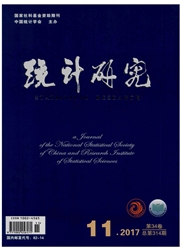

 中文摘要:
中文摘要:
本文通过36个国家2010年的横截面数据实证分析表明:个人所得税与基尼系数存在着相关关系,即个人所得税越高,社会公平程度越高。并利用美国、英国、韩国等发达国家以及中国、俄罗斯等典型转型国家的数据构建固定效应模型以及动态面板模型,稳健性检验表明墓无论是转型国家还是发达国家,个人所得税都是调节收入差距的重要杠杆。在中国经济改革中虽一然实行了利改税,但是税收负担依然落在企业头上,个人所得税的比重依然微不足道,因此缺少了调节贫富差距的杠杆,导致中国的贫富差距越来越大。
 英文摘要:
英文摘要:
This paper conducts empirical analysis on cross -section data of 36 countries in 2010. The results show that: personal income tax relates to Gini Coefficient, i.e., the higher income tax is, the greater the extent of social equity will be. We also use the data from the developed countries, e.g. the U. S. A., U.K. and South Korea etc., and the data from typical transition countries, e.g. China and Russia et., to construct the fixed -effect model and dynamic panel model. The robustness test suggest that: in the transition countries and the developed countries, personal income tax is an important lever to regulate income gap. Although the replacement of profit delivery by taxes has been implemented in China' s economic reform, burden of tax is still shouldered by firms. The proportion of personal tax is still not worth mentioning. As a result, the lack of the lever to regulate the gap between the rich and the poor leads to greater gap.
 同期刊论文项目
同期刊论文项目
 同项目期刊论文
同项目期刊论文
 期刊信息
期刊信息
